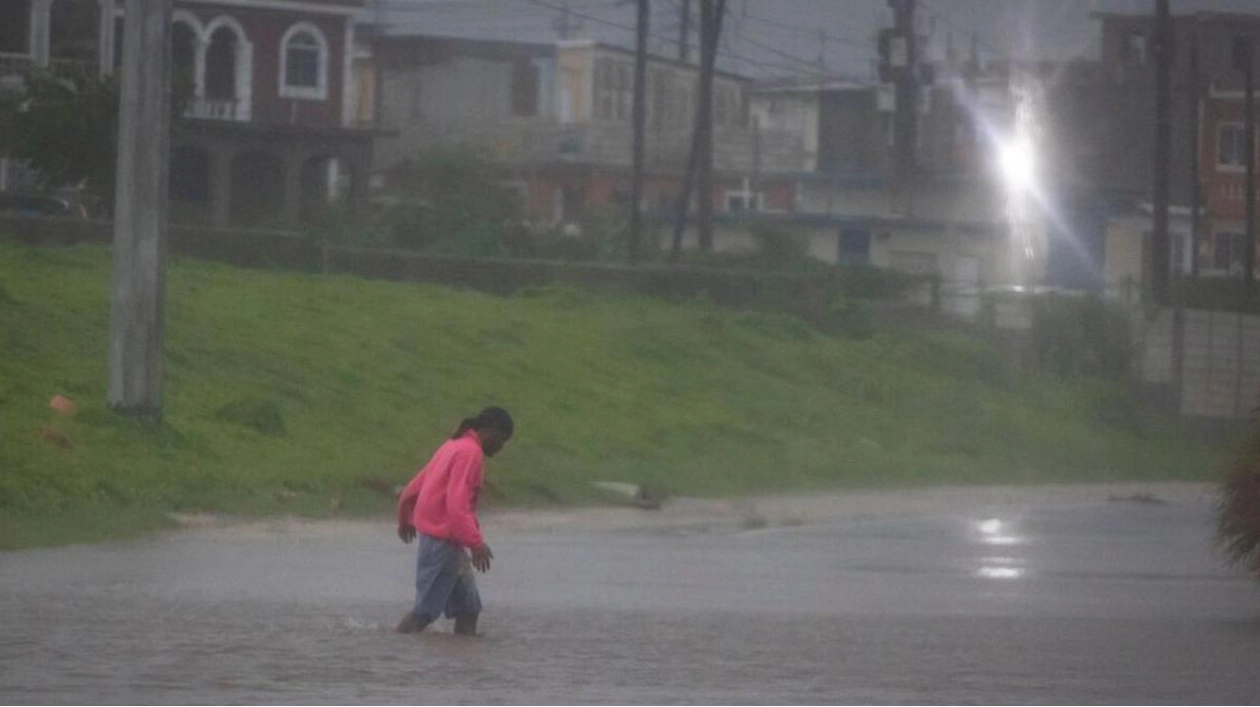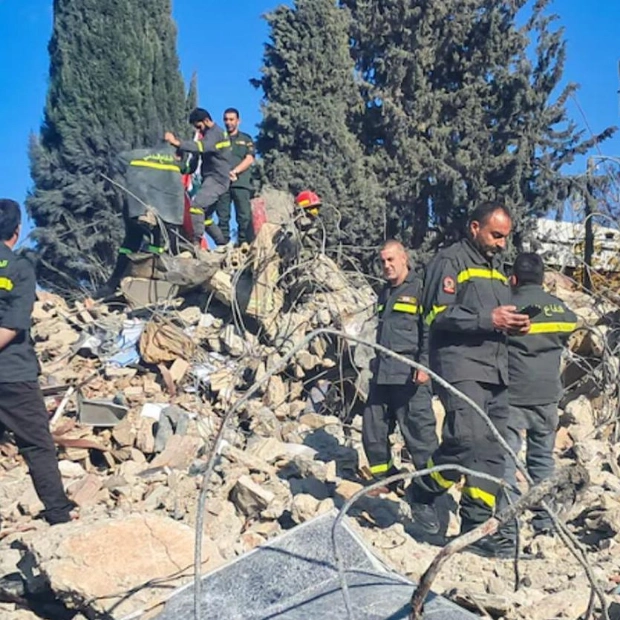Hurricane Beryl advanced towards the Cayman Islands and Mexico on Thursday, following its devastating passage through Jamaica, where it unleashed heavy winds and rains that led to flooding and widespread power outages, leaving a trail of destruction across several smaller Caribbean islands.
Beryl has reportedly claimed at least 10 lives so far, with expectations that this toll will increase as communication is reestablished on the islands ravaged by the storm's powerful winds and floods. The hurricane's eyewall passed along Jamaica's southern coastline, battering communities as a Category 4 storm on the Saffir-Simpson scale, prompting emergency evacuations in flood-prone areas.
"It's terrible. Everything's gone. I'm in my house and scared," recounted Amoy Wellington, a 51-year-old cashier from Top Hill, a rural farming community in southern St. Elizabeth parish. "It's a disaster."
Beryl departed Jamaica early Thursday. By 1200 GMT, the Category 3 hurricane was located 80 km from Grand Cayman and approximately 620 km from Tulum, Mexico, according to the US National Hurricane Center. Beryl was forecast to bring top winds of 209 kph and dump 10-15 cm of rain on the Cayman Islands, potentially causing life-threatening surf and rip currents.
A hurricane warning was issued for the Cayman Islands and the east coast of Mexico's Yucatan peninsula. Mexico's tourist hubs of Cancun and the broader Yucatan peninsula were in Beryl's projected path, leading to a rush of tourists at Cancun's airport trying to catch the last flights out before the storm's arrival. Local businesses fortified their premises with sandbags and boarded windows and doors.
Mexico's defense ministry activated around 120 storm shelters and urged the public to follow evacuation or other safety instructions. Beryl marks the first hurricane of the 2024 Atlantic season and reached Category 5 status earlier this week, making it the earliest such storm on record. A Category 5 hurricane involves winds of 252 kph or higher, capable of inflicting catastrophic damage, including the obliteration of homes and infrastructure.
In Jamaica, the island's main airports were shut down and streets largely deserted after Prime Minister Andrew Holness imposed a curfew that was extended into Thursday due to ongoing storm conditions. At least one death was attributed to the storm. Nearly 1,000 people sought refuge in shelters by Wednesday evening, according to Richard Thompson, acting director general at Jamaica's disaster agency.
The storm earlier impacted St. Vincent and the Grenadines, where Prime Minister Ralph Gonsalves described Union Island as "flattened" and anticipated a monumental effort to rebuild. There were at least three confirmed fatalities and extensive crop damage, with over 90% of buildings destroyed on Union Island.
In Grenada, Prime Minister Dickon Mitchell characterized the conditions as "Armageddon-like" following the storm's impact, with widespread destruction and no power, confirming three deaths. Venezuelan President Nicolas Maduro reported three deaths, four missing persons, and over 8,000 damaged homes.
The US National Oceanic and Atmospheric Administration (NOAA) has predicted an "extraordinary" season with a high number of major hurricanes. Beryl's early and powerful arrival highlights the effects of a warmer Atlantic Ocean, a phenomenon scientists link to human-induced climate change, exacerbating extreme weather events.






